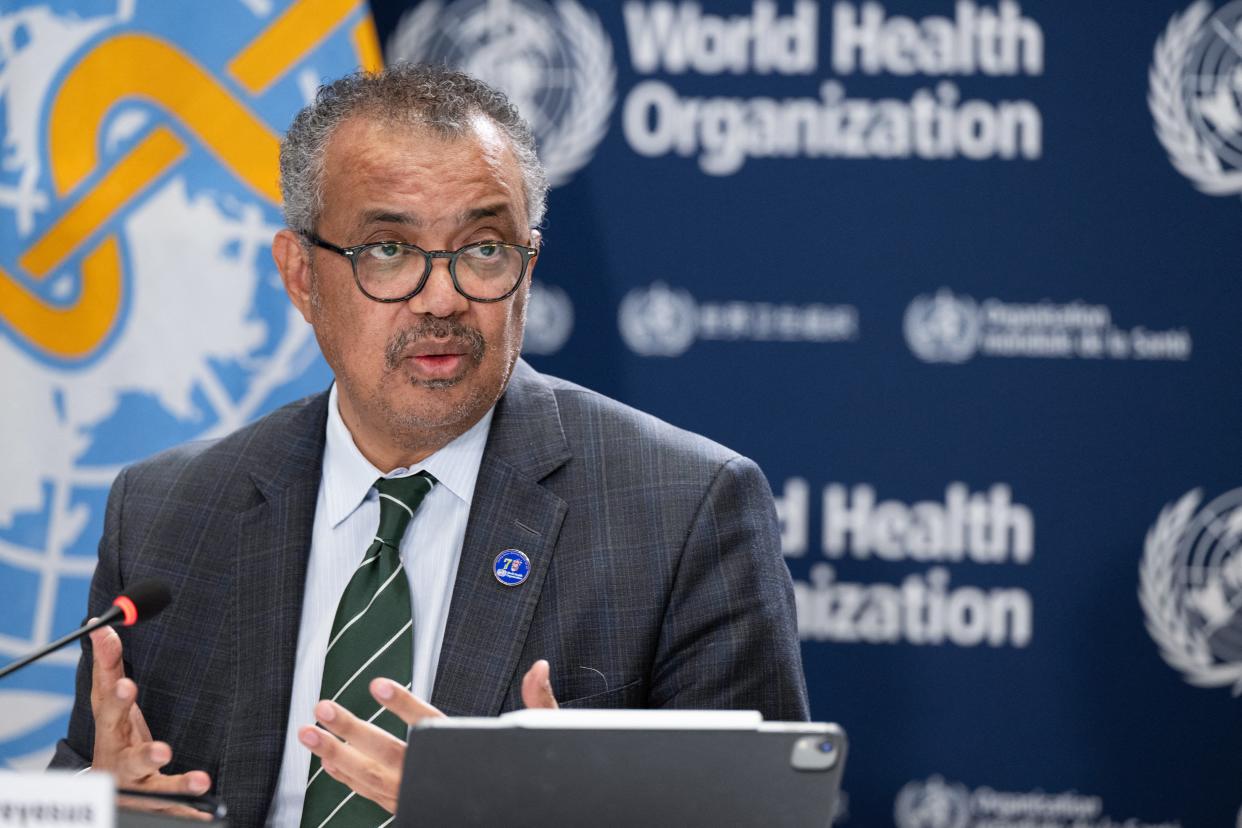Disease X: What to know about the hypothetical pandemic world leaders hope to prevent

A hypothetical virus dubbed Disease X has world leaders convening at the World Economic Forum in Switzerland this week to discuss how to prevent the threat of another cataclysmic pandemic.
Tedros Adhanom Ghebreyesus, director-general of the World Health Organization, planned to host a seminar Wednesday alongside other health officials in Davos to prepare to confront the potentially deadly virus.
The news ignited a heated debate on social media in the days leading up to the seminar, where conspiracy theories proliferated, with some warning that potential measures could parallel the shutdown orders put in place during the Covid-19 pandemic.
But despite the resurging interest in Disease X, the theoretical pathogen is not a new topic for the WHO. Even before the COVID-10 pandemic swept the globe, the United Nations agency has spent years researching and preparing for the next wave of deadly diseases.
Here’s what to know about Disease X and how world leaders are bracing for the next pandemic.
What is Disease X?
Disease X does not exist – at least, not yet.
Rather, the theoretical term "represents the knowledge that a serious international epidemic could be caused by a pathogen currently unknown to cause human disease,” according to the WHO. The "X" means "unexpected," but that doesn't mean leaders aren't concerned with ensuring the world is ready in case a deadly virus strikes.
In 2018, the agency added the term to its list of priority diseases and pathogens targeted for research and development. The plan, which includes known killers like Severe Acute Respiratory Syndrome (SARS) and Ebola, aims to “fast-track the availability of effective tests, vaccines and medicines” that can save lives during a major health crisis, WHO said.
How are world health officials planning for the next pandemic?
In 2022, WHO launched a global scientific process to update the list of potentially deadly pathogens that require investment in research to develop effective vaccines, tests and treatments.
The process included scientific and public health criteria, but also made considerations for the possible socioeconomic impact and access to life-saving measures.
The new approach focuses on not just individual pathogens, but also on entire classes of viruses or bacteria. More than 200 scientists from 53 countries joined the effort to independently evaluate 30 viral families, one core group of bacteria and the so-called "pathogen X," which WHO fears has the ability to trigger another severe global pandemic.
To track and manage emerging virus threats, WHO and other health experts began boosting efforts to discover and surveil deadly diseases, ramped up research and bolstered clinical trials, according to the agency.
What threat does Disease X pose?
Disease X's inclusion on the WHO priority list means that health officials believe there's a threat of an unknown (or long-forgotten) pathogen causing a serious international epidemic in the future.
The WHO was prompted to create the blueprint years ago after the Ebola outbreak in West Africa killed more than 11,300 people between 2014 and 2016.
Alongside the governments of numerous nations, as well as both public and private scientific agencies, WHO was able to create the “first-ever fully effective vaccine against Ebola” that was tested within a year, Marie-Paule Kieny, a former WHO assistant director-general, previously said.
Such measures are "essential for a fast and effective epidemic and pandemic response," Michael Ryan, executive director of WHO’s Health Emergencies Programme, said in 2022, adding that the preparedness is what allowed for COVID-19 vaccines to be developed "in record time."
Eric Lagatta covers breaking and trending news for USA TODAY. Reach him at elagatta@gannett.com
This article originally appeared on USA TODAY: What is Disease X? WHO virus study provides roadmap to stop pandemic

